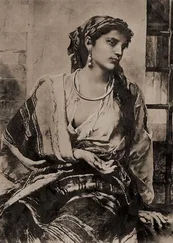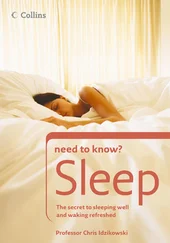What had spun out of control was my wife’s rage; she regarded us both, my mother and me, as people who were devoid of independence, eternally anxious to do everything right, and who for that very reason — because they were constantly trying to hide, to avoid reproaches. . because they had no desires and no questions. . because they skulked about the house as though under some tyranny from which a devastating verdict might come at any moment — for that very reason did every possible thing wrong. — You people show no initiative, my wife said, all you’ve learned is how to wait for orders, you have no sense of self, and that’s why you can’t enjoy life in this little house of mine. .
One time, I defended myself and accused my wife of acting like a Permanent Mission of the Federal Republic of Germany. When we were on her territory, we had damn well better be happy and show it. If we didn’t, we were an unacceptable proposition for the country that had just annexed its brothers and sisters from the other side. — You let yourselves be annexed with the greatest of pleasure, she said, things couldn’t move quickly enough for you. But lead independent lives — that you can’t do! — And she added that Marie was the only person she knew who’d at least tried to live independently. .
My wife was not entirely wrong. But she was unaware that Marie had lived too independently, that ever since the reunification we were constantly discussing she’d been unable to find her way to the welfare office, that she avoided going to the doctor because she was uninsured. And that was probably why her cancer had been diagnosed far too late. Marie lived more or less from handouts, but no one was allowed to mention it. I, too, had occasionally slipped a hundred-mark note into the purse that hung from her doorframe, secretly, knowing it would have humiliated her. .
Over time my messages to Marie, sent on postcards, had grown sparser, arid, monosyllabic; it struck me that she virtually never replied to my mail. She gave no more response than to the bills I slipped her. When I had a chance to phone I’d ask if she’d received my letters or cards. . and she would ask in return which letters and cards I meant. She probably would have responded the same way to a question I didn’t ask: Which hundred-mark bills do you mean? — This behavior was typical of Marie: if you sent something her way, she simply didn’t seem to notice. And she seemed not to notice when someone desired her; if you ended up in bed with her, she merely seemed to follow some sort of imaginary instructions. . though I put this down to my inability to show my desire, much less articulate it, which I felt was one of my innermost weaknesses. .
Filled with thoughts of this kind, I arrived in Leipzig: I saw at once that it was too late for all my questions. Marie’s bed had been moved into the tiny kitchen, close to the gas stove, as though now, in mid-September, heat was already needed. . often, as I recalled, Marie had heated with the flames of the oven, because coal was too expensive. And often enough I’d told her it was dangerous. By the bed stood a narrow table with the telephone, dirty dishes, and a quantity of open vials containing various morphine preparations. Next to them, in a torn-open envelope, I saw the card I’d written her a few days before. — It had arrived that morning, Marie said. — The painter who had let me in, a girlish creature with short blond hair, sat sketching in the next room, keeping an eye on things in the kitchen through the open door. Marie lay in bed in a white nightgown, speaking in a voice as soft as a breath, barely a whisper now, the words slipping, incorporeal, from lips that barely moved. Between words she caught her breath, smiling as though to apologize for the long pauses. — Could she show me her stomach, she asked; gingerly she pushed aside the blanket and lifted up her nightgown. Her abdomen was crisscrossed by bluish-red, barely-healed scars. Next to the alarmingly thin body a plastic bag collected her urine drop by drop.
Later, on the bus on the way to my mother, I remembered glimpsing for a few moments, barely covered by the white nightgown, her breasts, which alone were still completely unscathed. Marie seemed to know full well that I was staring much less at her wounds than at those breasts, those still-smooth, soft hemispheres, bared halfway up the brownish nipples. . those breasts were still firm and their beauty was flawless. Smiling, eyes alert, she had acknowledged my gaze; there was irony in her eyes as she pushed the nightgown down again. I knew this irony; it had been in her gaze whenever I said goodbye to her, when, late at night, I went out her door and she shut it softly behind me.
Why hadn’t I given in to impulse and laid my hands on her breasts? As ever, the target of Marie’s irony had been my suppressed desire. . as ever, when I left late at night, irked that I couldn’t make up my mind to spend the whole night with her. .
But perhaps, I thought, there would be another chance to visit. .
Around eight in the evening, in a turmoil, I arrived at my mother’s; she seemed pleasantly surprised. — I almost wasn’t home, she said. You know I often go to the theater on Fridays. But today they’re showing something I’ve seen twice before. — You know I’ve still got a key, I said. And I always have it with me when I come without telling you. — That’s right, she said, I almost forgot that. . did you write me that you were coming? — I don’t think so. — My mother forgot many things, now that she was going on eighty. What she never lost was her gentleness and solicitude toward her son, having forgotten all the old rancor over my unreliability, and especially my frequent drinking. — I ate almost nothing that evening, wouldn’t let my mother make me tea, making it myself instead; I’d already put my notebooks on the kitchen table, a sign that I wasn’t up for conversation. . several years ago my mother had begun taking my writing seriously, and accepted my silence. — I immediately began another card to Marie, telling her I meant to visit again on Monday, because, as I said, I’d been annoyed with myself for not staying a little longer today. Or not spending the whole night with her. — When she read the card on Monday, I knew, she’d have that ironic smile in her eyes again. — However — I added this qualifier at the end of the card — she shouldn’t hold it against me if I didn’t come, because I had to catch my flight from Dresden to Frankfurt early Monday evening, and I might have trouble making the connections. — On Monday, yes, if Marie was to have the card on Monday, I had to put it in the mailbox that night, at any rate by nine the next morning. It was always the same thing with me, the last act of my day’s twenty-four hours before I tried to find sleep was a five-hundred-meter trip to the mailbox.
After Mother had gone, I sat in the kitchen, thinking back on the afternoon. Outside, salutary darkness shrouded the small industrial town, which, following the so-called change , had swiftly metamorphosed into a sociopolitical rubble heap of vacant houses, empty shops with dusty windows, and defunct factories. The town didn’t even have a policeman now; that was perhaps the clearest benefit of the change so far. But a benefit for whom? If there was a chicken thief on the loose, you’d have to phone the riot squad in the district capital, a difficult matter, there being no phone booths here.
The sad jokes that came to my mind: I thought back on my life, on afternoons, countless overlong afternoons I’d draw out into the first light of dawn. . indeed, my life, what I called my life , had unfolded in the afternoons, in idle afternoons — and a few of them I had spent with Marie. I had always gone again in the evening, at least at a time when I could catch the last train from Leipzig.
Читать дальше












